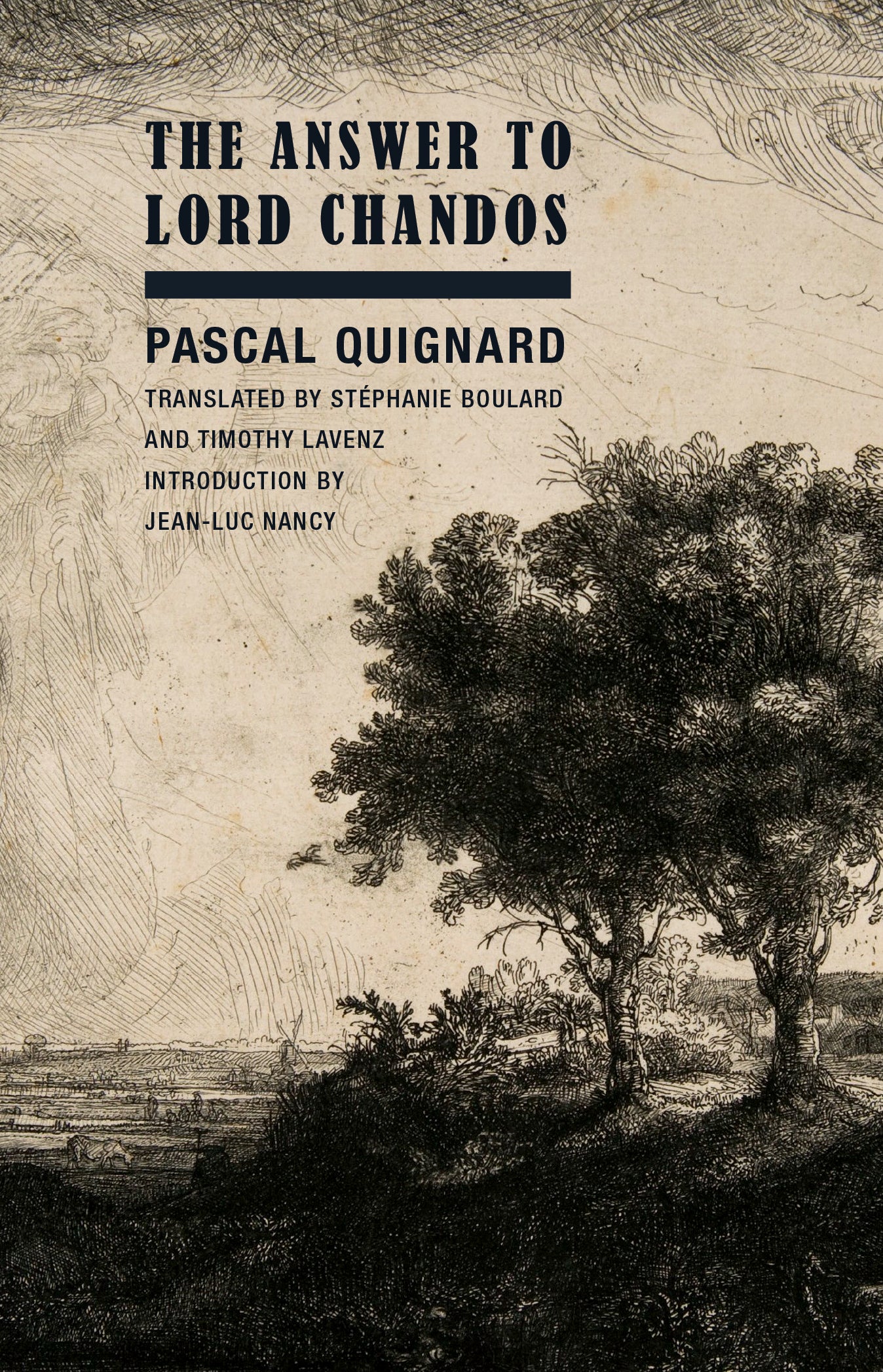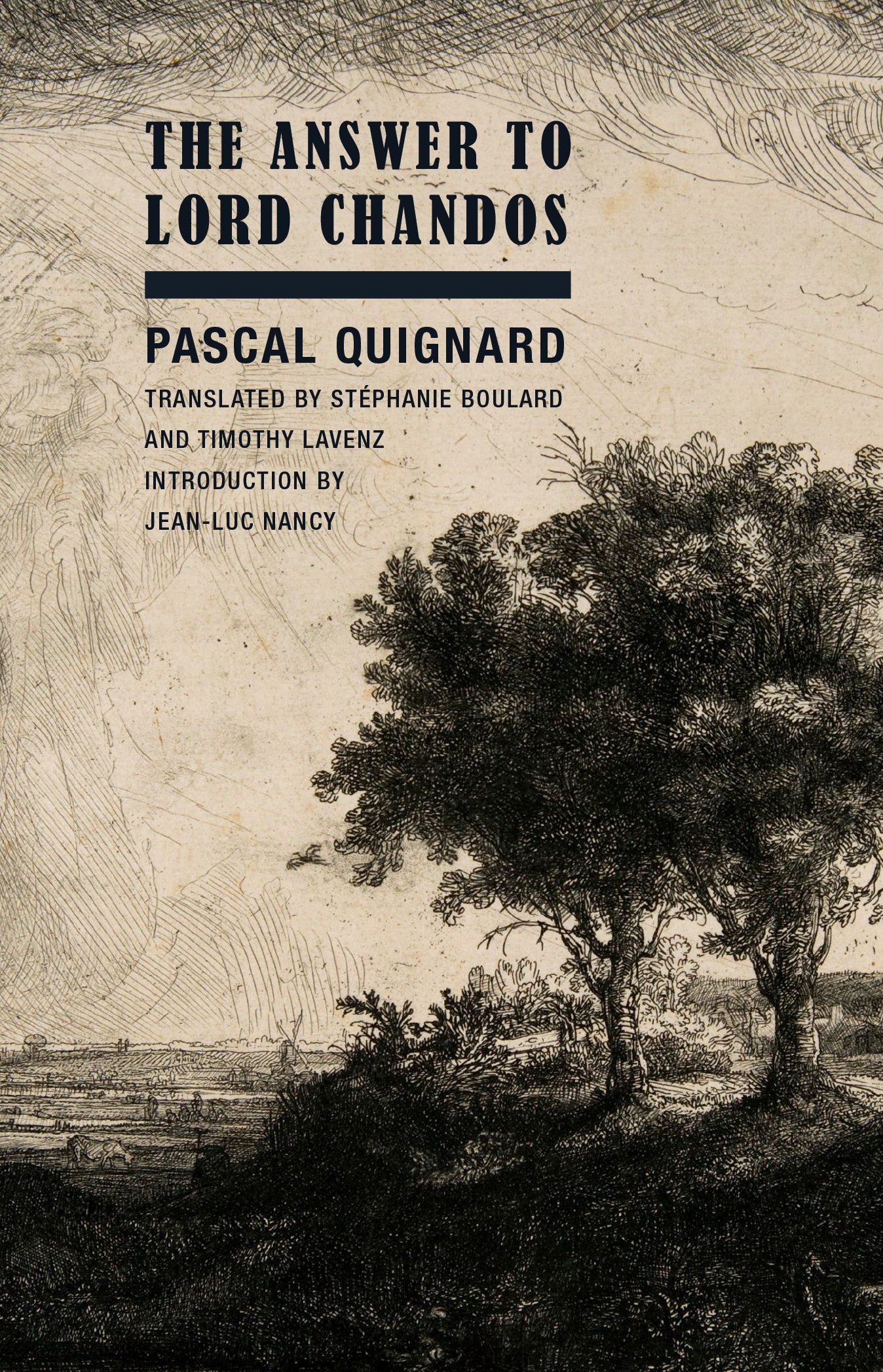The Answer to Lord Chandos
The Answer to Lord Chandos
Pascal Quignard
Couldn't load pickup availability
Introduction by Jean-Luc Nancy / Translated by Stéphanie Boulard and Timothy Lavenz / April 2024 / 4.5 x 7, 72 pp. / 978-1-939663-93-1
In 1902, Hugo von Hofmannsthal’s “Lord Chandos Letter” articulated a deep crisis of faith in language; having “lost completely the ability to think or speak of anything coherently,” the titular character abandons literature in favor of silence. In The Answer to Lord Chandos, a text the author spent forty-one years meticulously crafting, Pascal Quignard passionately challenges this withdrawal and urges us not to forsake the power of poetry. By uniting us with the tremendous cry at nature’s birth, literature rejuvenates our connection to the universe and transcends the strictures of acquired speech. In this exhilarating exhortation, which meditates on Emily Brontë, Handel, Rembrandt, and the legend of Bluebeard, Quignard inspires us to resurrect the ecstatic eruption of nature through the written word.
In an introduction to this first English edition, French philosopher Jean-Luc Nancy illuminates the core question animating this debate, which has resonated within literature since its inception: Can poetry give access to the real? Quignard’s resounding answer offers a testament to the immense value of literary expression.
Pascal Quignard (b. 1948) is the French author of over sixty books of fiction, essays, and his own genre of fragmented philosophical reflection: an amalgamation of personal journal, historical narrative, and poetic theory. His books in English include The Hatred of Music, All the World’s Mornings, Sex and Terror, and The Sexual Night, as well as the multiple volumes of his ongoing book project The Last Kingdom, which to date includes The Roving Shadows, The Silent Crossing, Abysses, The Fount of Time, and Dying of Thinking.
Jean-Luc Nancy (1940–2021) was a French philosopher. The subject of a monograph by Jacques Derrida, his long career saw a wide range of books on various thinkers, art, film, and the ideas of community, justice, and freedom. Nearly all his major works have been translated into English, including The Inoperative Community, The Birth to Presence, The Experience of Freedom, The Gravity of Thought, and Being Singular Plural.


